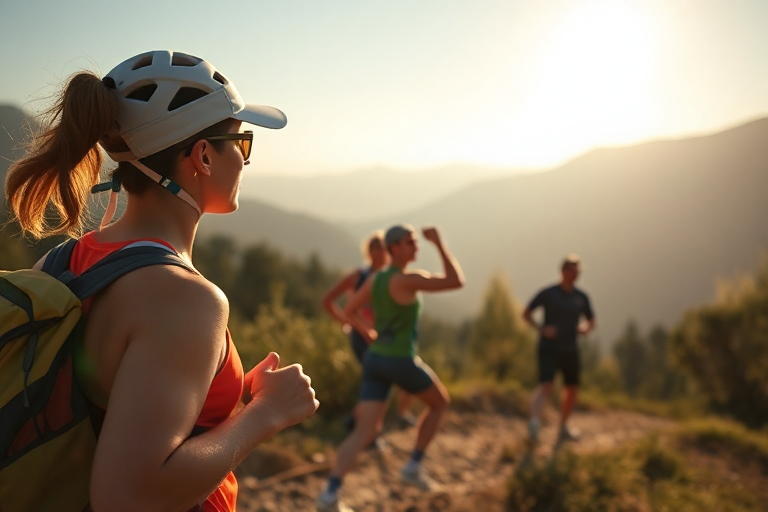
Outdoor sports are more than just a way to stay active—they are a gateway to improved physical, mental, and emotional well-being. Whether you’re hiking through a forest, cycling along a scenic trail, or playing soccer in a park, engaging in outdoor activities offers a unique combination of benefits that indoor workouts simply can’t match. Let’s dive into the science-backed advantages of outdoor sports and why you should consider making nature your gym.
Physical Health Benefits
One of the most obvious benefits of outdoor sports is the improvement in physical health. Activities like running, cycling, and swimming engage multiple muscle groups, enhance cardiovascular health, and boost endurance. Unlike indoor workouts, outdoor sports often involve uneven terrains, which challenge your balance and coordination, leading to better overall fitness.
Additionally, exposure to natural sunlight during outdoor activities helps your body produce vitamin D, a crucial nutrient for bone health, immune function, and mood regulation. Studies have shown that people who exercise outdoors tend to have higher levels of vitamin D compared to those who stick to indoor gyms.
Mental Health and Stress Reduction
Outdoor sports are a powerful tool for reducing stress and improving mental health. The combination of physical activity and exposure to nature has been shown to lower cortisol levels, the hormone associated with stress. Activities like hiking or kayaking allow you to disconnect from the hustle and bustle of daily life, providing a mental reset that can improve focus and productivity.
Research also suggests that spending time in green spaces can reduce symptoms of anxiety and depression. The calming effect of nature, combined with the endorphin release from exercise, creates a natural mood booster that can rival the effects of medication for some individuals.
Social Connection and Community Building
Many outdoor sports are inherently social, offering opportunities to connect with others who share similar interests. Whether it’s joining a local running club, participating in a beach volleyball game, or hiking with friends, these activities foster a sense of community and belonging. Social interaction is a key component of mental well-being, and outdoor sports provide a fun and engaging way to build relationships.
Moreover, team-based outdoor sports like soccer or ultimate frisbee encourage teamwork and communication, skills that are valuable both on and off the field. The camaraderie developed through these activities can lead to long-lasting friendships and a stronger support network.
Environmental Awareness and Appreciation
Engaging in outdoor sports also fosters a deeper connection with the environment. As you spend more time in nature, you become more aware of the beauty and fragility of the natural world. This awareness often translates into a greater appreciation for conservation efforts and a desire to protect the environment.
Activities like trail running or mountain biking can also teach you about local ecosystems, flora, and fauna, enriching your understanding of the world around you. This connection to nature can inspire a more sustainable lifestyle and a commitment to preserving outdoor spaces for future generations.
Tips for Getting Started
If you’re new to outdoor sports, start with activities that match your fitness level and interests. For beginners, walking or light hiking is a great way to ease into outdoor exercise. As you build stamina, you can explore more challenging activities like rock climbing or long-distance cycling.
Remember to prioritize safety by wearing appropriate gear, staying hydrated, and being mindful of weather conditions. It’s also a good idea to let someone know your plans, especially if you’re venturing into remote areas.
Finally, don’t be afraid to try something new. Outdoor sports offer endless possibilities, from paddleboarding to snowshoeing, so there’s always an opportunity to discover a new passion.
In conclusion, outdoor sports are a holistic way to improve your health and well-being. They offer physical, mental, and social benefits while fostering a deeper connection with nature. So, lace up your shoes, grab your gear, and head outside—your body and mind will thank you.
